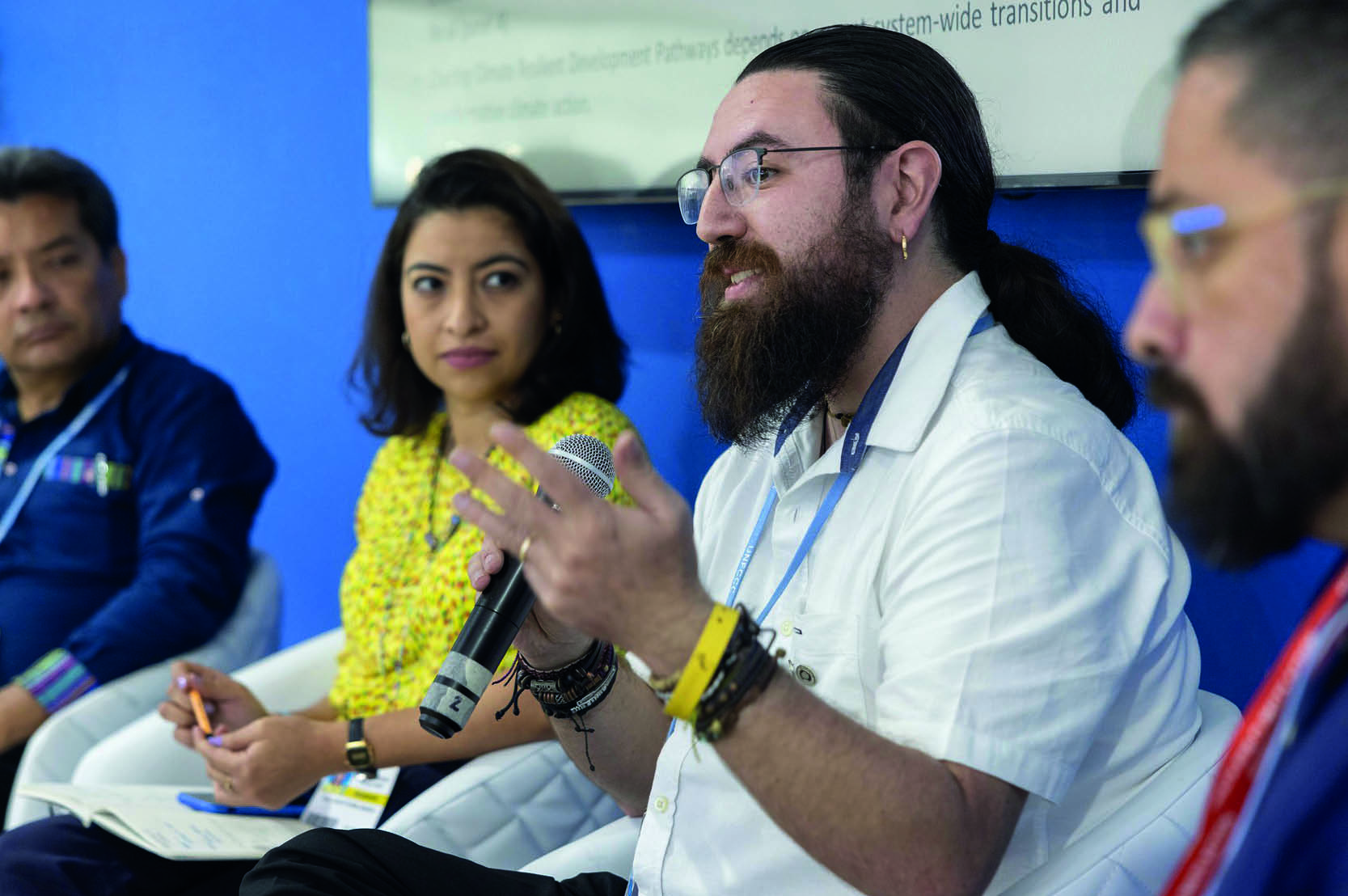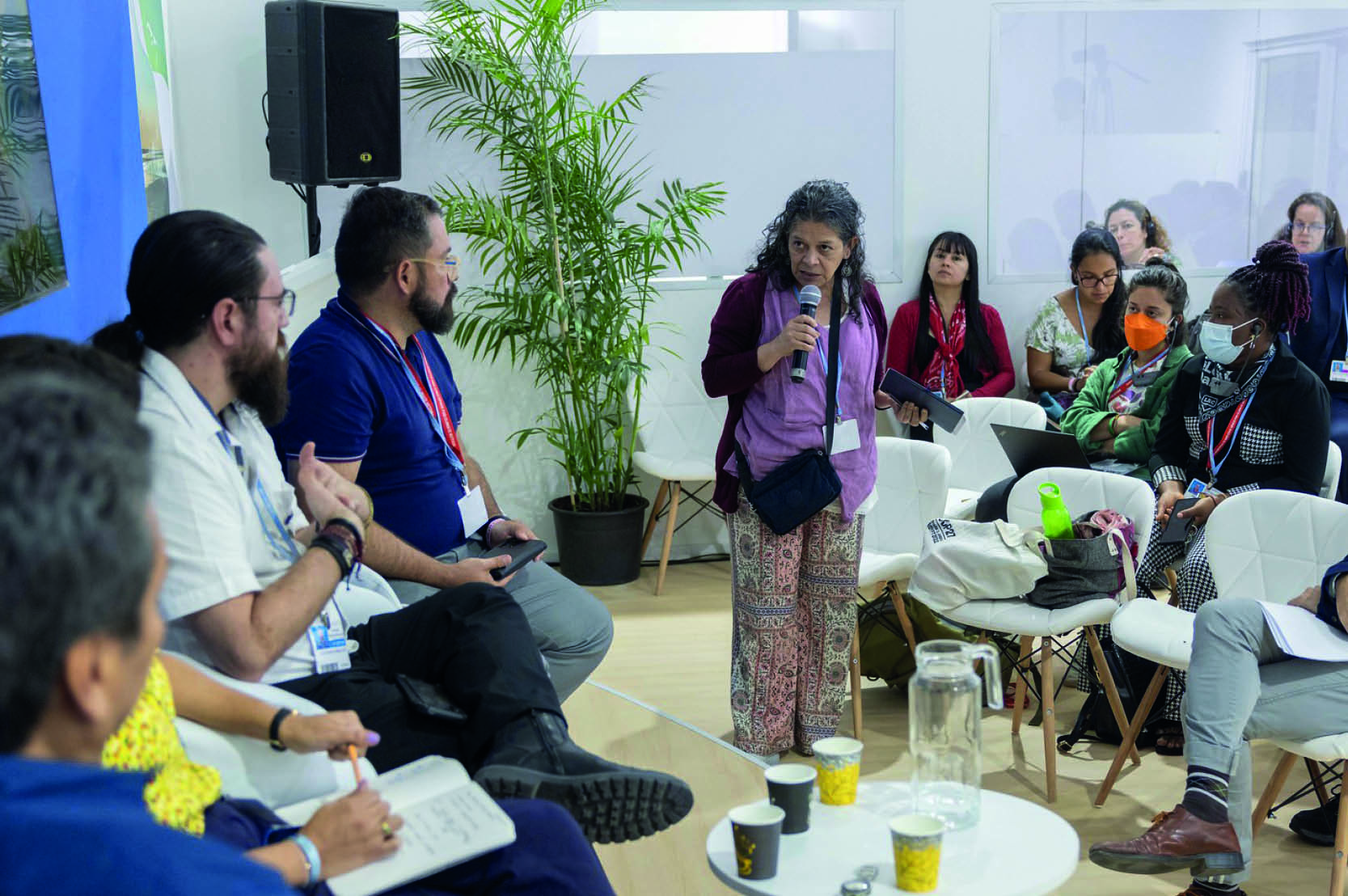Discussing the situation of the Central American territory strongly affected by climate change was the central objective of this event.
15 November 2022, Sharm-El-Seikh, Egypt - The discussion at this event centred around the high levels of exposure and vulnerability observed in Central America, especially from extreme variations of excess and lack of rainfall. To this end, the findings of the recent report of the Intergovernmental Panel on Climate Change (IPCC) Working Group 2 were presented and discussed.
The event Climate Resilient Trajectories in Central America: The Role of Water in Transition Systems was organised by the Universidad del Valle de Guatemala (UVG), the Intergovernmental Panel on Climate Change (IPCC) and the Climate Service Center, Germany (GERICS).
The activity started with a presentation by Dr. Edwin Castellanos from Guatemala, coordinating lead author of the chapter on Central and South America in the IPCC report. Dr. Castellanos emphasised the high exposure condition observed in the region due to high population density and population growth. He also discussed the high vulnerability derived from precarious socio-economic situations in the population, especially high poverty and inequality. Finally, he showed future climate models that indicate that the region will be receiving less rainfall as the temperature increases. This will result in a change in the composition of current forests and increased water stress for urban areas.
Next, teacher Tania Guillén, from Nicaragua, contrasted the low levels of greenhouse gas emissions with the high impacts observed due to extreme events, for example, the recent hurricanes Eta and Iota in 2020 and Julia in 2022, and how these events end up increasing the debt of Central American countries due to the necessary reconstruction. She spoke of the expected and observed risks in the region in terms of water security, public health, food security and damage to infrastructure. The high impacts observed and expected in the region present a situation of climate injustice for a region that does not contribute substantially to the problem, but does receive strong impacts from global warming. She also highlighted the existing information gap about the region in terms of climate projections, but also in terms of adaptation actions already implemented in the territories.

Dr. Luis Fernandez from Mexico elaborated on the concept of Climate Resilient Development Pathways, a concept expanded in the Sixth Report to include the topic of inclusive socio-economic development. Adaptation to climate change should not be seen in isolation for each sector, but rather addressed in a holistic manner. Decisions made by central governments, local governments and communities can move us closer to or further away from a climate resilient path. Societal decisions that are characterised by inclusiveness, social justice, inclusion of diverse knowledge and care for the environment will allow us to better adapt to observed climate changes.
Finally, Adrian Martinez from the Climate Route in Costa Rica complemented the presentations based on the IPCC report with descriptions of real situations that his organisation has observed in working with communities in the region. Impoverished communities have less and less capacity to cope with extreme weather situations and are therefore heavily dependent on external support, sometimes from local governments, but more often from international cooperation.
In the discussion with the audience, there was talk of maladaptation situations that can have undesirable side effects and increase the risks to communities. They also spoke of the high exposure due to the population density observed in countries such as Guatemala and El Salvador and the need to seek more inclusive development so that the most impacted populations, which are the poor, can have the necessary resources to pursue adaptation.

